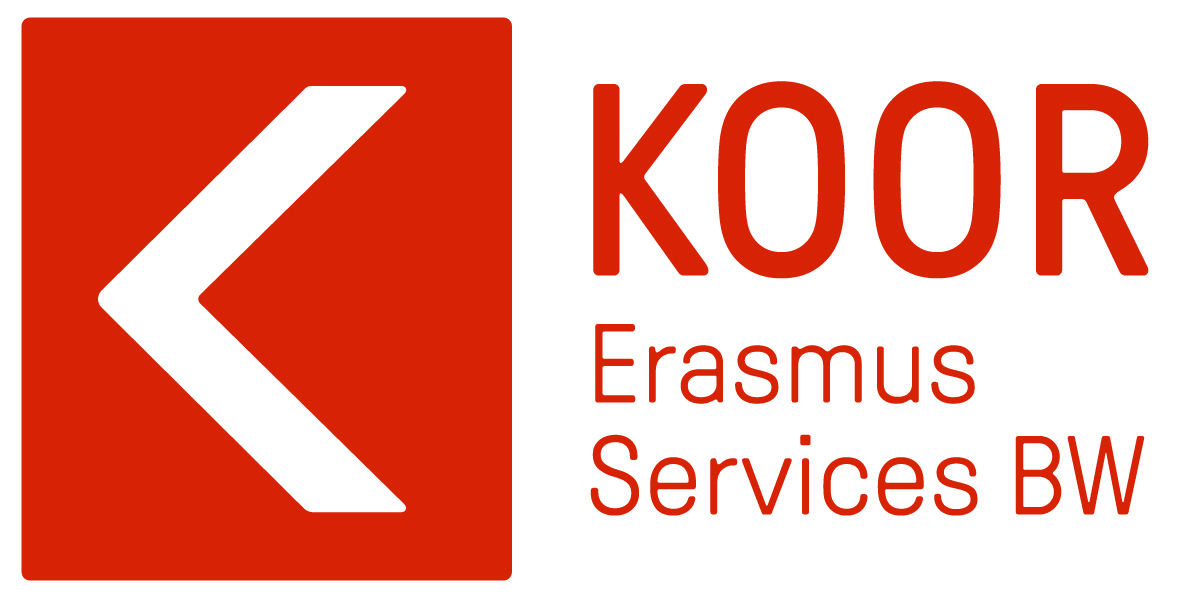
ERASMUS+ and the DAAD
What is ERASMUS+?
ERASMUS+ is the program for education, youth and sport of the European Union and the world's largest exchange program for students, interns and trainees. It s aim is to promote lifelong learning in the EU in a sustainable way.
In2021, it launches the new program generation, which covers the period 2021-2027. In the previous generation of programs, the European Union allocated around 14.8 billion euros to enable mobilities across Europe - the new generation of programs now has almost double that budget: An incredible 26 billion euros will be made available for all educational sectors! According to the DAAD, this means that over the next seven years around 10 million participants will be on the move in Europe and around the world through student exchanges or internships abroad and will be able to benefit from EU funding. Because what is new in this program generation and in Key Action 1 is that up to 20% of the approved funds can also be promoted for mobilities to partner countries outside the EU!
Erasmus+ also contributes to the further internationalization of universities with funding for short-term lectureships and further training stays for teaching and administrative staff. Furthermore, universities can invite corporate staff from abroad for teaching visits and can now also participate in multilateral Strategic Partnerships with other European partners (also from the non-academic sector) and jointly develop innovative projects (e.g. in the field of curriculum development or on cross-educational topics)
What is the aim of ERASMUS+?
The overarching aim of the Erasmus+ program is to support the educational, professional and personal development of people in the fields of education, training, youth and sport in Europe through lifelong learning, thereby leading to sustainable growth, qualified jobs, social cohesion, contribute to promoting innovation, strengthening European identity and active citizenship. The following priorities have been set for the Erasmus+ program 2021-2027:
- inclusion and diversity
- digital transformation
- environment and combating climate change
- participation in democratic life
With the Erasmus+ charter for higher education, the universities have committed themselves to taking these priorities into account when implementing the Erasmus+ program and to making the appropriate capacities available for this. The implementation of Erasmus+ is organized both decentrally, by national agencies, and centrally, by the Executive Agency of the European Commission (EACEA). In the field of higher education in Germany, the NA DAAD performs the tasks of a national agency for Erasmus+ on behalf of the Federal Ministry of Education and Research (BMBF).
Further information can be found on the NA DAAD website www.eu.daad.de and on the website of the European Commission.
Funding lines
Under the umbrella of the EU education program Erasmus+, the following mobility measures are funded under Key Action 1:
- Study Abroad for Students (SMS)
- Internship abroad for students (SMP)
- Teacher Mobility (STA)
- Staff Mobility (STT)
- Blended Intensive Programs (BIP)
Target countries
The funding for most of the mobility measures and the Strategic Partnerships will be awarded by the National Agencies in the 32 (26 EU countries and 6 countries outside the EU: Iceland, Liechtenstein, Northern Macedonia, Norway, Turkey, Serbia). In Germany, this task will be performed by the German Academic Exchange Service (DAAD) as before.
Disclaimer
This project has been funded with support from the European Commission. The author is solely responsible for the content of this publication; the Commission shall not be held responsible for any further use that may be made of the information contained therein.
German Academic Exchange Service (DAAD)
A department of the DAAD has been responsible for the European collaboration of tertiary education since 1987 as national agency.
Further information and advice on the Erasmus+ mobility measures can be obtained here:
Deutschen Akademischen Austauschdienst (DAAD)
Nationale Agentur für EU-Hochschulzusammenarbeit
Kennedyallee 50
53115 Bonn
Phone: +49(0)800 2014 020
Fax: +49(0)228 882 555
Email: erasmus@daad.de
Web: www.eu.daad.de


